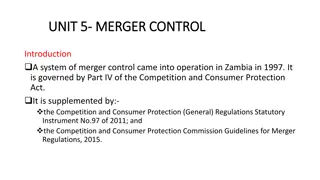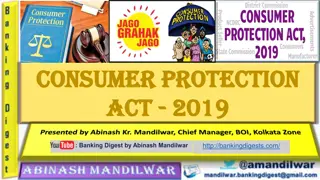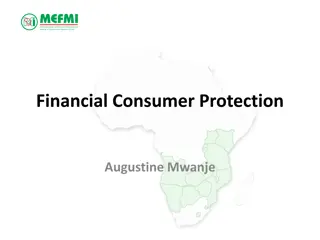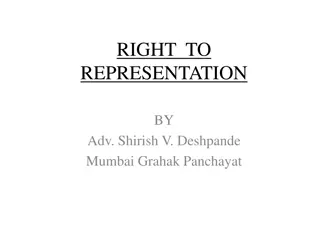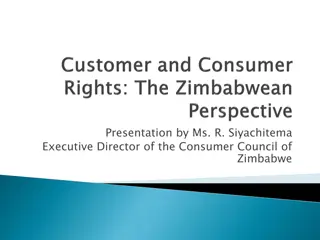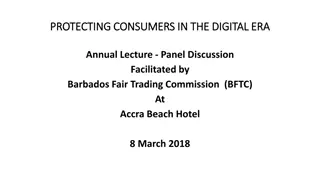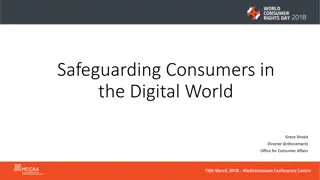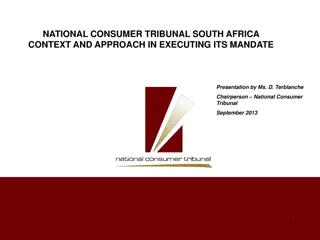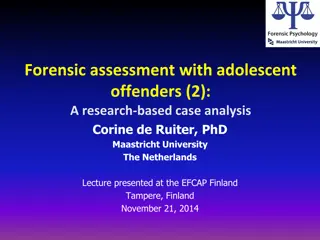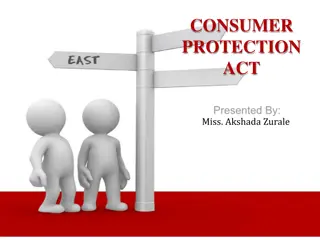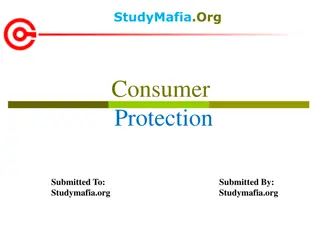Understanding Consumer Protection Laws in Business with Dr. Samir Kumar Panigrahi
Gain insights into Consumer Protection Act 1986 and its significance in safeguarding consumer rights. Learn about the definition of a consumer, scope of the act, and the provisions for resolving consumer disputes. Explore how these laws aim to prevent consumer exploitation and promote fair trade practices.
Download Presentation

Please find below an Image/Link to download the presentation.
The content on the website is provided AS IS for your information and personal use only. It may not be sold, licensed, or shared on other websites without obtaining consent from the author. Download presentation by click this link. If you encounter any issues during the download, it is possible that the publisher has removed the file from their server.
E N D
Presentation Transcript
Business Law (Module V) Dr. Samir kumar Panigrahi
Learning Objectives: The objective of the course is to impart basic knowledge of the important business laws along with relevant case laws. To practically apply these laws in real life situations with the help of cases and rulings. Contents : Consumer Protection Act Object, Scope, Definition and Right of the consumer Definition and scope of the IT act. Digital signature Electronic Governance Cyber regulation Appellate Tribunal
About Consumer Protection Act The post-independence period witnessed a change in focus towards industrialization and economic development which led to the increase in consumer as well as the consumption of goods and services. This in turn led to the consumer exploitation on the part of the business enterprises. Consequently there was a growing consumer awareness which led to consumer movement throughout the country. This led to the enactment of the Consumer Protection Act, 1986. The Consumer Protection Act, 1986 came into effect from 15thApril, 1987 except chapter 3rd (regarding Consumer Disputes Redressal Agencies) which came into effect from1st July, 1987. The Act has been enacted to provide for better protection and promotion of consumer rights through the establishment of consumer councils and other authorities for settlement of customer s disputes. The Act is applicable to the whole of India except the state of Jammu and Kashmir. Under the Act, consumer disputes redressal agencies have been set up throughout the country at the district level, state level and national level to provide simple, inexpensive and speedy justice to the consumers having complaints against defective goods, deficient services, unfair and restrictive trade practices. The Act was amended in the years 1991, 1993 and 2002.
Meaning of Consumer Section 2 (1) (d) of the Act defines the word consumer and it includes the following persons A person who buys any goods for a consideration which has been paid or promised or partly paid and partly promised or under any system of deferred payment. It also includes any other user of such goods when such use is made with the approval of the buyer. The expression, however, does not include a person who obtains such goods for resale or for any commercial purpose. Scope of the Act The Act extends to the whole of India except the State of Jammu and Kashmir and applies to all goods and services unless otherwise notified by the Central Government. The Act received the Presidents assent on 24.12.1986. However, all provisions of the Act except those relating to establishment, composition, jurisdiction, etc. of the Consumer Disputes Agencies (which came into force on 1.7.1987) came into force on 15.4.1987. Section 2(1) of the Act defines various terms used in the Act. Some of the definitions are given here under: Complainant means a consumer, or any voluntary consumer association registered under the Companies Act, 1956, or under any other law for the time being in force; or the Central Government or any State Government, who or which makes a complaint; or one or more consumers where there are numerous consumers having the same interest; in case of death of a consumer, his legal heir or representative; who or which makes a complaint [Section 2(1)(b)]
RIGHTS OF THE CONSUMERS AND RELIEFS AVAILABLE TO CONSUMERS Section 6 of the Act recognizes the following rights: Right to safety: the right to be protected against the marketing of goods and services which are hazardous to life and property. Right to be informed: the right to be informed about the quality, quantity, potency, purity, standard and price of goods or services, as the case may be, so as to protect the consumer against unfair trade practices. Right to choose: the right to be assured, wherever possible, access to a variety of goods and services at competitive prices. Right to be heard: the consumers interests will receive due consideration at appropriate forums. Right to seek redressal: against unfair practices or restrictive trade practices or unscrupulous exploitation of consumers. Right to consumer education: the right to acquire the knowledge and skill to be an informed consumer. The consumers in case of their grievances can approach any of the three tier quasi- judicial redressal machinery envisaged in the Act. Any consumer or recognized consumer association or the Central government or State Government could file a complaint with any of the redressal forums. The filing of complaints with the redressal forums depends upon the value of the goods or services and the compensation claimed. If the value of the goods or services and the compensation is within Rs. 20 lakhs, then the complaint can be filed in the district forum within the local limits of whose jurisdiction the opposite party actually resides or carries on business or has a branch office or personally works for gain or where the cause of action, wholly or in part, arises (Sec. 11).
CONSUMER PROTECTION COUNCILS The interests of consumers are sought to be promoted and protected under the Act inter alia by establishment of Consumer Protection Councils at the Central, State and District Levels. Chapter II of the Consumer Protection Act, 1986 comprising Sections 4 to 8 deals with Consumer Protection Councils. Central Consumer Protection Council Section 4 empowers the Central Government to establish a Council to be known as the Central Consumer Protection Council (hereinafter referred to as the Central Council), consisting of the Minister in charge of Consumer Affairs in the Central Government, as its Chairman, and such number of other official or non- official members representing such interests as may be prescribed. However, the Consumer Protection Rules, 1987 restrict the number of members of the Central Council to 150 members. Section 5 of the Act requires the Central Council to meet as and when necessary, but atleast once in every year. The procedure in regard to transaction of its business at the meeting is given in Rule 4 of the Rules. State Consumer Protection Council Section 7 provides for the establishment of State Consumer Protection Councils by any State Government (by notification) to be known as Consumer Protection Council for (name of the State). The State Council shall consist of a Minister incharge of Consumer Affairs in the State Government as its Chairman and such number of other official or non-official members representing such interests as may be prescribed by the State Government and such number of other official or non official members, not exceeding ten, as may be nominated by the Central Government. The State Council shall meet as and when necessary but not less than two meetings shall be held every year. The procedure to be observed in regard to the transaction of its business at such meetings shall be prescribed by the State Government.
District Consumer Protection Council In order to promote and protect the rights of the consumers within the district, section 8A provides for establishment in every district of a council to be known as the District Consumer Protection Council .It shall consist of the Collector of the district (by whatever name called), who shall be its Chairman and such number of other official and non-official members representing such interests as may be prescribed by the State Government. The District Council shall meet as and when necessary but not less than two meetings shall be held every year. The District Council shall meet at such time and place within the district as the Chairman may think fit and shall observe such procedure in regard to the transaction of its business as may be prescribed by the State Government. REDRESSAL MACHINERY UNDER THE ACT The Act provides for a three-tier quasi-judicial redressal machinery at the District, State and National level for redressal of consumer disputes and grievances. The District Forum has jurisdiction to entertain complaints where the value of goods/services complained against and the compensation, if any claimed, does not exceed Rs.20 lakhs, the State Commission for claims exceeding Rs. 20 lakhs but not exceeding Rs. 1 crore; and the National Commission for claims exceeding Rs.1 crore. District Forum Section 9 of the Act provides for the establishment of a District Forum by the State Government in each district of the State. However, the State Government may establish more than one District Forum in a district if it deems fit to do so. Section 10(1) provides that each District Forum shall consist of:
a person who is, or who has been, or is qualified to be, a District Judge, who shall be its President; two other members one of whom shall be a woman, who shall have the following qualifications, namely: be not less than thirty-five years of age, possess a bachelor s degree from a recognised university, be persons of ability, integrity and standing, and have adequate knowledge and experience of at least ten years in dealing with problems relating to economics, law, commerce, accountancy, industry, public affairs or administration: Provided that a person shall be disqualified for appointment as a member if he has been convicted and sentenced to imprisonment for an offence, which, in the opinion of the State Government involves moral turpitude; or is an un discharged insolvent; or is of unsound mind and stands so declared by a competent court; or has been removed or dismissed from the service of the Government or a body corporate owned or controlled by the Government; or has, in the opinion of the State Government, such financial or other interest as is likely to affect prejudicially the discharge by him of his functions as a member; or has such other disqualification as may be prescribed by the State Government. Every member of the District Forum shall hold office for a term of 5 years or up to the age of 65 years, whichever is earlier, and shall be eligible for reappointment for another term of five years or up to the age of sixty-five years, whichever is earlier, subject to the condition that he fulfills the qualifications and other conditions for appointment mentioned in Section 10(1)(b) and such re-appointment is also made on the basis of the recommendation of the Selection Committee. A member may resign his office in writing under his hand addressed to the State Government.
State Commission: This is set up by each state It consists of President and two members. Complains should be at least 20 lacs and exceed not more than 1 crore. The goods are sent for testing and if found defective are asked for replacement or compensation. If not satisfied can make an appeal within 30 days in front of the National Commission. National Commission: Consist of President and 4 members. The complaint must exceed an amount of 1 crore. The goods are sent for testing and if found defective are asked for replacement or compensation
Information Technology Act, 2000 In 1996, the United Nations Commission on International Trade Law (UNCITRAL) adopted the model law on electronic commerce (E-commerce) to bring uniformity in the law in different countries. Further, the General Assembly of the United Nations recommended that all countries must consider this model law before making changes to their own laws. India became the 12th country to enable cyber law after it passed the Information Technology Act, 2000. The Information Technology Act, 2000 provides legal recognition to the transaction done via electronic exchange of data and other electronic means of communication or electronic commerce transactions. This also involves the use of alternatives to a paper-based method of communication and information storage to facilitate the electronic filing of documents with the Government agencies.
Objectives of the Act The objectives of the Act are as follows: Grant legal recognition to all transactions done via electronic exchange of data or other electronic means of communication or e-commerce, in place of the earlier paper-based method of communication. Give legal recognition to digital signatures for the authentication of any information or matters requiring legal authentication Facilitate the electronic filing of documents with Government agencies and also departments Facilitate the electronic storage of data Give legal sanction and also facilitate the electronic transfer of funds between banks and financial institutions Grant legal recognition to bankers under the Evidence Act, 1891 and the Reserve Bank of India Act, 1934, for keeping the books of accounts in electronic form. Scope or Extent of the ACT It extends to the whole of India It also applies to any offence or contravention committed outside India by any person irrespective of his nationality, provided such offence or contravention involves a computer, computer system or network located in India.
Non-Applicability According to Section 1 (4) of the Information Technology Act, 2000, the Act is not applicable to the following documents: Execution of Negotiable Instrument under Negotiable Instruments Act, 1881, except cheques. Execution of a Power of Attorney under the Powers of Attorney Act, 1882. Creation of Trust under the Indian Trust Act, 1882. Execution of a Will under the Indian Succession Act, 1925 including any other testamentary disposition by whatever name called. Entering into a contract for the sale of conveyance of immovable property or any interest in such property. Any such class of documents or transactions as may be notified by the Central Government in the Gazette. Digital Signature According to Section 2(1) (p), digital signature means authentication of any electronic record using an electronic method or procedure in accordance with the provisions of Section 3 . Further, digital signatures authenticate the source of messages like an electronic mail or a contract in electronic form. The three important features of digital features are: Authentication They authenticate the source of messages. Since the ownership of a digital certificate is bound to a specific user, the signature shows that the user sent it. Integrity Sometimes, the sender and receiver of a message need an assurance that the message was not altered during transmission. A digital certificate provides this feature. Non-Repudiation A sender cannot deny sending a message which has a digital signature. Authentication of Electronic record
Electronic Governance (Section 4 -10) Meaning of E- Governance Provisions- Legal recognition of electronic records Section 4 Legal recognition of digital signatures Section 5 Use of electronic records and digital signatures in the Government and also its agencies Section 6 Delivery of services by service provider - Section 6 A Retention of electronic records Section 7 Audit of documents, records or information maintained in electronic form - Section 7A Publication in Electronic Gazette Section 8 Section 6,7 and 8 Not to confer right to insist on the acceptance of documents in the electronic form Section 9 Central Government s power to make rules pertaining to digital signatures Section 10 Validity of contracts formed through Electronic means Section 10A
The Cyber Appellant Tribunal was created under the Information Act of 2000. The tribunal solely has appellant jurisdiction, as its name implies. As a result, it has the ability to exercise its appellant jurisdiction over a judgment or order made by the Controller of Certifying Authorities or the adjudicating official, both on the facts and in law. In other words, it has the legal authority to investigate the decision or order s accuracy, legality, and propriety. The Central Government has created the country s first and only Cyber Appellate Tribunal in line with the terms of Section 48(1) of the Information Technology Act, 2000. Establishment of the Tribunal (Section 48) This Section explains how the Cyber Appellant Tribunal will be established. The central government will issue a notification establishing one or more appellant tribunals. The Central Government also lists all of the subjects and locations that come under the Tribunal s jurisdiction in the announcement.
Power and procedure of the Cyber Appellant Tribunal (Section 58) The Cyber Appellate Tribunal s method and powers are laid forth in Section 58 of the Information Technology Act, 2000 Sub-clause (1) Section 58 states that the Cyber Appellate Tribunal is not bound by the Code of Civil Procedure, 1908, but rather by the principles of natural justice and that the Cyber Appellate Tribunal, subject to the other provisions of this Act and any rules, has the authority to regulate its own procedure, including the location of its hearings. Clause (2) Section 58 stipulates that, for the purposes of executing its responsibilities under this Act, the Cyber Appellate Tribunal shall have the same powers as a civil court under the Code of Civil Procedure, 1908, while trying an action, in respect of the following matters: (a) Summoning and enforcing the attendance of any person and examining him on oath; (b) Requiring the discovery and production of documents or other electronic records; (c) Receiving evidence on affidavits; (d) Issuing commissions for the examination of witnesses or documents; (e) Reviewing its decisions; (f) Dismissing an application for default or deciding it ex parte; (g) Any other matter which may be prescribed.
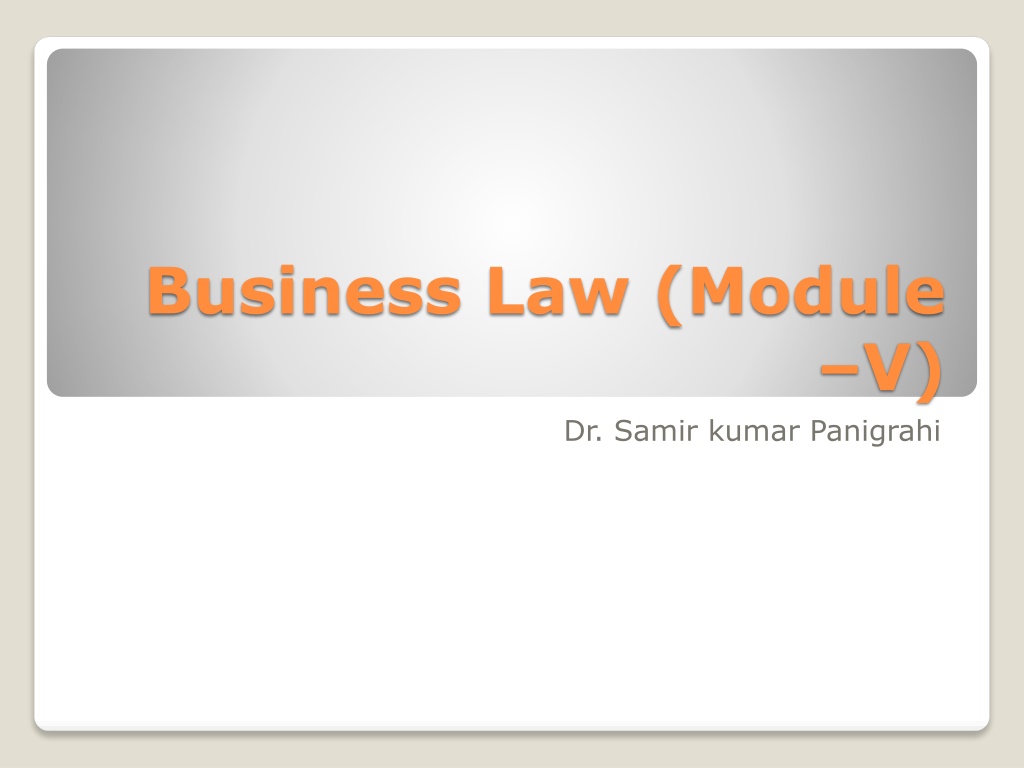
 undefined
undefined








